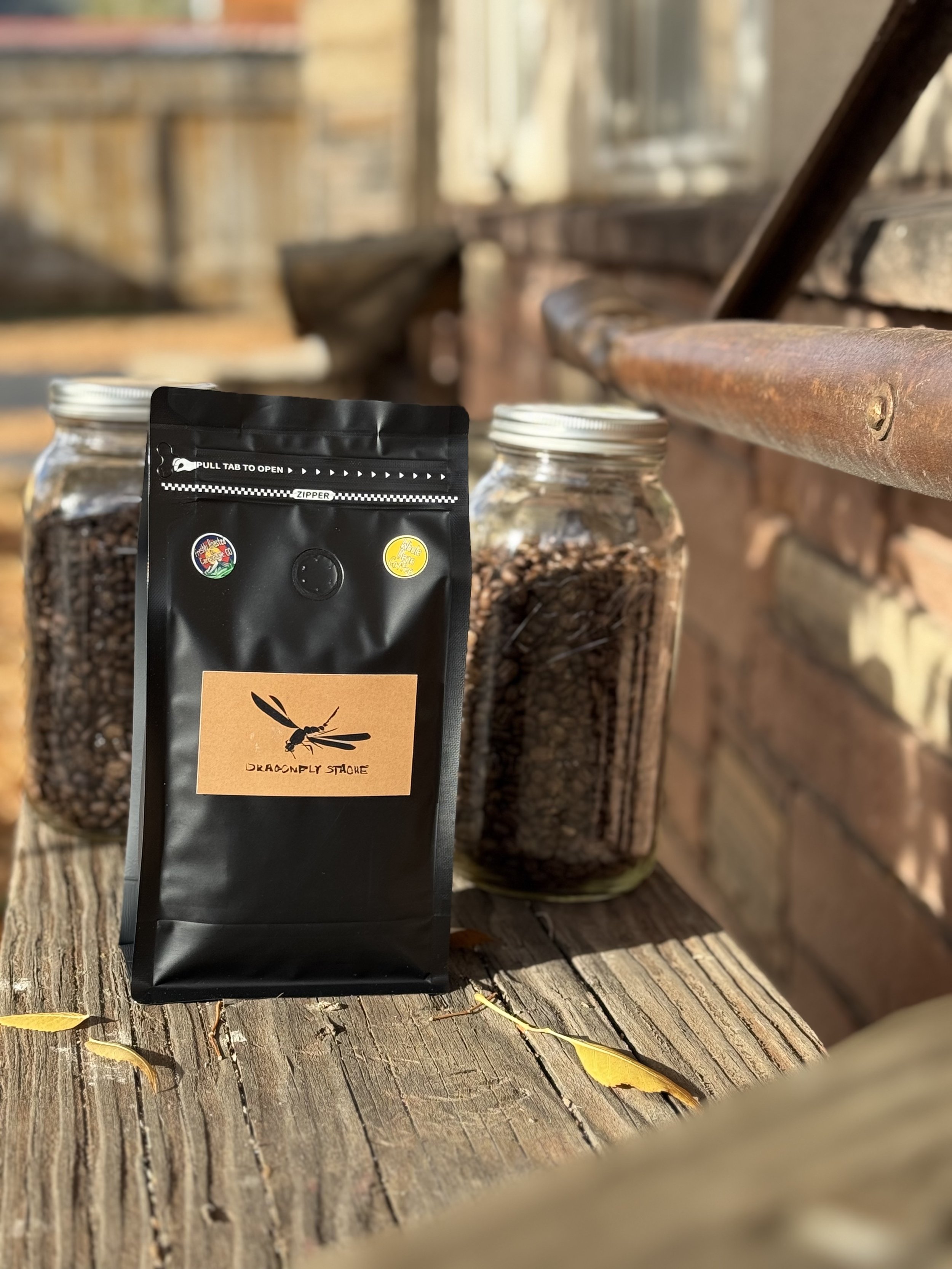An incredibly special coffee from a special place. Bali is different, in a good way. It
cannot get any more beautiful, with perfect weather creating the perfect growing
conditions for almost any plant. Everything is so lush and green year round. Three
volcanoes nestled in the middle of this fairly small island, are at a perfect altitude for
coffee, a bit more acidic soil as well which coffee tends to love. Produced by people
who live harmoniously with the land. An incredible sight to see and a real treat to drink.
This is the wet-hulled version. Traditional Indonesian processing which leaves a thicker
generally lower acidity more stout like cup of coffee.
Coming from family owned farms located in the Kintamani highlands on the island
province of Bali, Indonesia. Coffee is grown in the volcanic soils of Mount Agung along
with citrus trees that provide shade and another source of income. Coffee production is
typically organized around a Subak Abian, which refers to the ecologically sustainable
irrigation systems developed more than 1,000 years ago by Hindu priest who practice
Tri Hita Karana (the three sources of prosperity), a philosophy focused on the
harmonization between the environment, humans and God.
Bali Blue Moon is a Royal staple named after the hallmark bluish hue of the bean
produced from the wet-hulling process called Giling Basah in the Indonesian language.
The bulk of Bali’s coffee production comes from small family-owned farms where each
producer uses a few acres to cultivate coffee along with citrus trees in the volcanic soils
of Mount Agung’s Kintamani highlands. They carefully sort their harvested cherries
before depulping and fermenting overnight with their own micro-mills. Then the coffee is
washed and laid out on patios to shed the excess water from the coffee parchment.
Next the coffee takes a detour from the conventional path of processing in other origins,
wherein, the coffee parchment is removed while the coffee still has a high moisture
content. This wet-hulling process or Giling Basah leaves the coffee bean exposed while
drying on patios to a moisture percentage acceptable for export and gives the beans
their distinct bluish color.
Balinese producers continue to maintain a traditional rural lifestyle organized around a
Subak Abian, which is a reference to the ecologically sustainable irrigation systems
developed more than 1,000 years ago by Hindu priests who practice Tri Hita Karana
(the three sources of prosperity), a philosophy focused on the harmonization between
the environment, humans and God. These traditions are followed in coffee cultivation,
which means pesticides and synthetic fertilizers are never used.
In recent years, local producer groups have begun to partner with regional exporters like
Indokom to establish organic and Rainforest Alliance certifications, which harmonize
with their traditional principles of conserving forest, soil, and water resources. Indokom
also collaborates with producers to overcoming logistical challenges like rugged roads
and lack of infrastructure. Indokom provides logistics and milling facilities, which
improves traceability and quality control throughout the post-harvest process, as well
as, the ability to swiftly bring the coffee to the international market, ensuring greater
producer earnings from direct trade relationships.
I like to take this one to a full city. A strong medium-roast. It is very versatile and will
hold almost any roast except light. Usually I drink this Bali just a touch lighter than I take
Sumatra coffees. A little sheen on the surface of the beans, to a spot of wet looking oil,
usually good to go! This coffee being wet-hulled will roast a bit uneven, very normal for
it. Low chaff.
